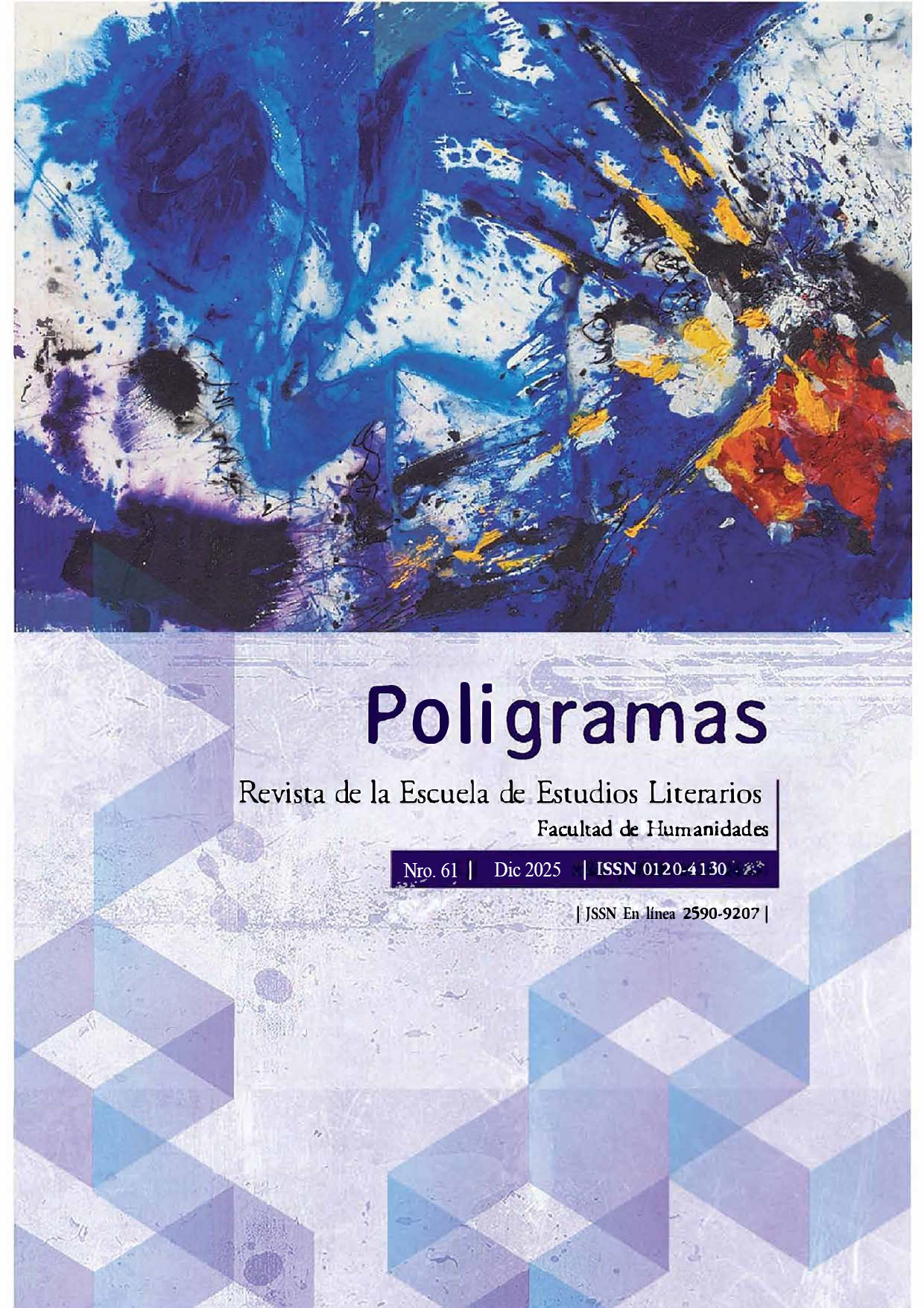Captivity and mexican fantastic narrative: an analytical approach to the short story “Con los ojos abiertos” by Amparo Dávila from the perspective of Marcela Lagarde de Los Ríos’ The Women’s Captivity
Main Article Content
This research paper proposes an analysis of the short story “Con los ojos abiertos” by Mexican author Amparo Dávila, drawing from the notion of women’s captivity as described in Los cautiverios de las mujeres by anthropologist Marcela Lagarde de los Ríos (2016). The research focuses on the protagonist, Mariana, who is presented by Dávila in an adverse context marked by fantastic disruptions. The analysis also aims to explore how the fantastic, embodied in a supernatural entity that seeks to harm the protagonist, is linked to the concept of otherness in the fantastic, as discussed by Rosemary Jackson (2009) in Fantasy: The Literature of Subversion. This otherness unfolds as an antagonistic force within the plot, becoming an element in the articulation of the captivity. It is suggested that the fantastic mode serves as a strategy to critique and bring to light the cultural dynamics of captivity that affect women.
- literature
- fantastic
- intertextuality
- captivity
- symbolism
Agamben, Giorgio. ¿Qué es un dispositivo? Seguido de El amigo y La iglesia y el Reino. Col. Argumentos. Núm. 476. Traducción Mercedes Ruvituso. Barcelona, Esp.: Ed. Anagrama. 2015.
Barrenechea, Ana. “Ensayo de una tipología de la literatura fantástica”. Revista Iberoamericana, vol. 38, núm., 80, 1972. DOI: https://doi.org/10.5195/reviberoamer.1972.2727 DOI: https://doi.org/10.5195/reviberoamer.1972.2727
Dávila, Amparo. Cuentos reunidos. Fondo de Cultura Económica, 2021.
Foucalt, Michel. Obrar mal, decir la verdad. La función de la confesión en la justicia. Curso de Lovaina, 1981. Col. Serie fragmentos foucaltianos. Tr. Horacio Pons. México: Ed.Siglo XXI. 2016.
Gil de la Piedra, C. “El Horror Cotidiano En Los Cuentos De Amparo Dávila Y Shirley Jackson”. Humanística. Revista De Estudios Críticos Y Literarios, núm., 5, 2024, pp. 1-16, https://doi.org./10.46530/hrecl.vi5.85 DOI: https://doi.org/10.46530/hrecl.vi5.85
González, Irene. En busca de una poética: análisis de los cuentos de Amparo Dávila. Universidad Autónoma de Ciudad Juárez, 2014.
González, Irene. El silencio destrozado y transgresión de la realidad: Aproximaciones a la narrativa de Amparo Dávila. Universidad Autónoma de Ciudad Juárez, 2017.
Instituto Nacional de las Mujeres. “Boletín 11: ENADIS 2017. Resultados sobre mujeres”. Desigualdad en cifras, Centro de documentación (CEDOC) del Instituto de Mujeres, 2019. Sitio web: http://cedoc.inmujeres.gob.mx/documentos_download/BA5N13%20Ed%20Especial%20VoBo%20051219.pdf
Jackson, Rosemary. Fantasy the literature of subversion. Routledge, 2009.
Jaegi, Urs. “La Literatura Como Espejo De La Realidad”. Revista Mexicana De Ciencias Políticas Y Sociales, vol., 20, núm., 77, 2021, https://doi.org/10.22201/fcpys.2448492xe.1974.77.80988
Lagarde, Marcela. Los Cautiverios de las mujeres madresposas, monjas putas y locas. Siglo XXI Editores Mexicanos, 2016.
Santiago, Lucero., et al. “El pabellón del descanso” de Amparo Dávila, la casa como enemigo íntimo.”. Sincronía revista de Filosofía, Letras y Humanidades, núm. 82, 2022, DOI: https://doi.org/10.32870/sincronia.axxvi.n82.29b22 DOI: https://doi.org/10.32870/sincronia.axxvi.n82.29b22
Todorov, Tzvetan. Introducción a la literatura fantástica. Premia Editora de Libros s.a., 1981.
Downloads

This work is licensed under a Creative Commons Attribution-NonCommercial-ShareAlike 4.0 International License.





